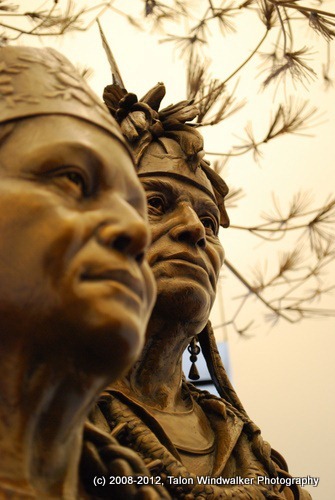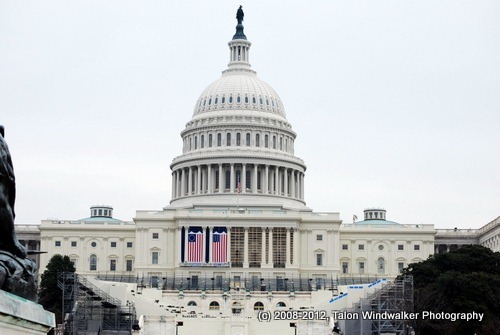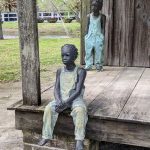I was sitting on a small cushion on the floor of a tea house in Olomouc, a medium-sized city in the Czech Republic whose population increases by a third whenever university classes are in session. We had joined our couchsurfing hosts at a meeting of their English-speaking group. I sipped my tea, the heat from the cup thawing out my hands, as I listened to the harsh bubbles of someone inhaling from a hooka behind me. Japanese-, French-, and Czech-accented English nearly surrounded me. Tigger was exhausted from swimming for a few hours, and he was curled up in the corner of the room snoozing on a couple of pillows. I smiled at the various conversations.
That’s when I heard: “I have an American Studies exam. I’m nervous I won’t pass.”
“There’s an American studies class here? That’s interesting.” I said.
Expressions lit up. “You’re an American!”
We had a nice chat about different places in my native country. The Czech culture tends to be very direct, so I was not surprised when conversation turned to Obama and some of the current political happenings. The conversation got really interesting when one the most proficient Czech English speaker in the room asked, “What do you think about 9/11?”
Once they had confirmed they had an open-minded American who wasn’t afraid to answer difficult cultural and political questions, the nervous student asked me a question that made me pause: What does it mean to be an American?
I blinked a few times and took another sip of my tea as I contemplated what he had asked. The first that thing came to my mind was “To be born in America.”
Surely, though, it’s more complex than that. One’s national identity is a big part of who they are, even if they don’t closely relate to their native culture. I thought of some of the things that have bothered me about the typical American culture, as well as the many happenings in my country that greatly disturb me.
I thought of some of the differences between my country and many of the ones we have visited over the last almost 1000 days. Earlier in the evening, my new Czech friend had talked about his country’s history of oppression and how until the 90s they have always been ruled by someone else.
Unless you’re Native American, that is an unfamiliar experience for us. Once we became a country, we have remained under our own leadership. No foreign power has ruled us in over 237 years.
I dug deeper, and something that other nomadic Americans and I have discussed previously returned to my awareness: From the time we are little, we grow up believing that if we want something bad enough and are willing to work hard to achieve it, we can do and be anything we want.
This is what forms the foundation of “the American dream.” We believe that regardless of socioeconomic status, race, gender, whatever we can achieve pretty much anything. Our country’s populace is full of these real-life stories.
To be American is also to believe in something bigger than yourself. I don’t necessarily mean that in a religious sense. Americans believe in their family, their circle of friends, and that when they are in need their community will gather to help.
While sometimes our politics make it seem otherwise, Americans are very charitable. Per capita, Americans donate more to charity than any other nation on earth. This was something that had made a strong impression on my very charitable Australian doctor.
Because of some of my political views, I have often been accused of not being “a good American.” I don’t venerate the members of the military, and I don’t agree with our presence in multiple foreign lands. No, I don’t believe the NSA’s vast spying has anything to do with “keeping America safe.” I believe it’s despicable how we treat our elderly, and I find it incredibly sad that one of the wealthiest nations on earth thinks it’s okay that its citizens are dying because they can’t afford medical treatment.
If that makes me a bad American, so be it. Because I believe being an American is so much more than that.
Being an American is also living life on one’s own terms, pursuing your passions and dreams, and standing out from the crowd of sheeples as an individual who thinks for him- or herself. It’s saying I don’t like this situation, and I’m going to change it.
It’s also about taking accountability for one’s own actions. Rather than looking constantly to our past, we have our eyes set fully on the future.
For me, being an American is more than an identity on a passport. This is why I sometimes get so frustrated with my government and some of my fellow citizens. I look at many of the things happening in the US, and it causes me to grieve.
I know we’re capable of so much more.
How about you? What does it mean to you to be an American?









February 13, 2014
You’re in simple fact a great webmaster. The web page running rate can be extraordinary. Them type of senses that you are carrying out virtually any exceptional strategy. Furthermore, This subject matter usually are masterwork. you could have conducted a fantastic hobby on this make any difference!
January 12, 2014
Talon, I think you summed up what it means to be an American beautifully. I didn’t realize until I started traveling that not everyone thinks/believes that “if you want something bad enough and are willing to work hard to achieve it, you can do and be anything you want.” While I believe that statement is wonderful, I think it also causes a tremendous amount of discontent for Americans because it’s not always true. Thanks for helping to clarify a difficult question.
January 13, 2014
You are definitely correct that it isn’t always true. Sometimes it seems like it’s even less true now than when I was younger.
January 11, 2014
I do consider my nationality while living at home- all the time! I am Canadian, and we tend to analyse cultures and their blessings constantly, because we are made up of thousands of different cultures. When I travel and people hear me speak, if they don’t know many North Americans, they’ll think I’m American. It is only when they get to chat with me and talk about culture that they understand that I am from Canada. People assume that my own politics are the same as my country’s, and usually, they assume most of my beliefs align with American politics…wrong on both accounts! I usually consider myself a global citizen. At home, I teach international literature, and it’s analysis of humans, and I also teach Canadian lit and it’s analysis – I do have to say, there are differences- not better/worse, but beautiful, human differences- thank goodness we’re not all the same!
January 12, 2014
And I love celebrating those differences. They are part of what makes the world so exciting!
January 9, 2014
Interesting. I, perhaps unusually, feel no patriotism towards my country of birth whatsoever (for the record, I’m British). For me, i *is* just the nationality on my passport, and something I’m neither proud nor ashamed of. It’s convenient, and I’m grateful for having this citizenship over many others in terms of the freedom of movement that grants me, but beyond that, it’s more or less meaningless to me.
January 10, 2014
I had never really thought about it until he asked me the question. I, too, value my passport because it’s one of the top ones to have for travel. I don’t generally feel all that connected to my nationality and never really have. To me it’s such a small piece of who I am compared to all the other stuff.
January 9, 2014
I think being an American really hits home when you’re overseas and being asked. When you’re home, you don’t even think about it! To me, it means choices, really. Not that those aren’t available elsewhere, but that our “american dream” promotes that. Whether that really happens? Depends on circumstances, I think.
January 10, 2014
Definitely a multifaceted question. Yeah, I don’t think people really consider their nationality when they’re at home. You don’t really realize the cultural differences and issues until you’re in a foreign environment.
January 9, 2014
I’ve not had the privilege of traveling overseas, but I’m going to relate here something I noticed when we moved from Texas to Georgia, because I think it’s the same sort of thing others in this discussion have observed on a global scale. I’ve lived in Pennsylvania, California, Utah, Texas, Georgia, and now Alabama. I’ve visited several other states. While each state and/or region has particular cultural characteristicss, in the long run, there are many more similarities than diffences. I really hadn’t noticed it much before, but when we moved from Texas to Georgia, it struck me as it had not before. Maybe it was because I was older and didn’t have pressing things like very small children to deal with. The kids were older and also noticed many of the same things I did. Over this last summer, we visited 6 National Parks as well as National/State parks in Arizona, California, and Oregon. We met many visitors from around the world – France, Germany, Australia, Lithuania, Italy, Korea, and more. We managed, sometimes with difficulty, to communicate with them. When we did manage to make ourselves understood, we were all pleased. There were laughs over my high school French, and their high school English. All in all, however, we were all just people, and the differences were far less important than the similarities. And I suspect that’s true all over the world, but unfortunately, many people don’t realize that and choose to focus on the differences, which is sad.
January 9, 2014
Cultural identity is an interesting thing, and cultures can vary widely from city to city much less state to state.
January 8, 2014
* Czech Republic
January 8, 2014
I believe that an American is a person born in the USA. Your first instinct was probably the one I agree with. I was born in Romania but I am an American citizen. Am I an American? Yes, if you look at my passport. Not really if you ask me. I chose to live here for many reasons but it doesn’t make me an American. The more I travel, the more I see that the only real proof of what you are is where you were born. You may love living in the Check Republic and you’ll stay there for 20 years. Will you still be an American? Probably… You might not agree with a lot of things but I think that being a global citizen is no good substitution for nationality. I go often back to Romania and I feel strange at times, I don’t always feel at home or that I belong (I left when I was 17) but I will never be able to say to anyone that I am an American. Because it’s not true. I chose to live there and I’m great full that I can. However, think of this… If I am traveling to a different country, not the one I was born in and not the one I live in, I always say that I am an American. And I feel that way. But when I am in my native country or in the country that I live, there is only one correct answer, I am Romanian. It’s weird and I’m not sure how other people who have lived in two cultures for longer periods of time feel.
January 9, 2014
With due respect, Alecs, I don’t think place of birth necessarily forms identity. I think it is more accurate to say that you are more likely to culturally identify with the culture in which you lived during your formative years. In your case, you lived in Romania for 17 years – birth to almost-adulthood.
My two children were born in another country and came here as infants when I adopted them. While they may look like the majority racial identify of their birth country, they are culturally American and clearly identify as such. When we’ve returned to their birth country, the citizens there clearly identify them as American – because even though they have learned the language of their birth country, and we’ve worked hard to become a dual-culture family, the fact is that the only culture they’ve really only known on a deep level is American.
January 9, 2014
I would be curious to know how they feel. I understand your point of view and it make sense, for you, but it’s an interesting thing that is locked deep into your heart, the place you were born. I don’t think about it everyday and I go on about my life normally, but when you have to stop and think… when someone asks you where are you from, it’s different than when they ask where were you born… In my opinion. Also, I think that the fact that United States it’s a melting pot of people and cultures, it makes it easier to say I’m an American. Because you can. Because that’s what it is at the base of the country, it’s immigrants. I wonder if it is the other way around, if as an American you were to move to a different country, would it be as easily accepted?
January 9, 2014
Yes, there’s a big difference between nationality and cultural identity for sure!
January 9, 2014
I don’t see being a global citizen as a substitution for nationality. To me it’s a broader perspective of feeling connected to places all over the world. Someone who has never left their home state is more likely to not feel as deeply for the issues going on around the world, whereas when there was destruction in the Philippines I felt it more deeply because I’ve been there and spent time with locals. The immigration plight of Romanians and Bulgarians in the EU would probably not affect me or touch me as deeply had I not spent 3 months living there and developing a love for the country and its people.
January 8, 2014
It’s an interesting question… for anyone of any nationality.
I’m no patriot to my own country but I believe that part of who I am has been shaped by the history and character of where I was born. I don’t have a problem with that. I love the fact that we’re all different in some way – it’s what makes experiencing new places and cultures such a pleasure.
I had a friend who used to say ‘what a boring place the world would be if we were all the same’.
As the French say ‘vive la différence’.
January 9, 2014
Amen to that! Attempting to homogenize a culture is so sad to me. Those differences should be celebrated!
January 8, 2014
Great article. I think for me, too, I don’t really identify with many of the things that America seems to represent anymore like consumerism and governmental politics. I prefer to think of myself as a global citizen!
January 8, 2014
I think global citizens are the ones who will change the world. 😉
January 8, 2014
Most interesting (as usual) Talon, and it’s a question that reliably comes up frequently as we Americans travel the globe.
But I must say, coincidentally – your question comes at a time when – just recently it dawned on me that…
After just 2+ years of living as an expat – I no longer think of myself as an “American”. Indeed, the lines between everyone I meet – be they locals or fellow travelers/expats – just don’t seem to matter to me much. Nationalities just disappear, and I think of folks around me simply as “people”. “Global citizens” if you will – that happen to share the same (exceedingly fragile) Planet.
In short, I feel blessed that I finally understand what Msr. Lennon meant by: “Imagine there’s no countries…”
January 8, 2014
I very much agree. I’ve never really felt all that connected to the American culture to begin with, but the longer we’re away the more global I feel. Which is what I wanted for Tigger. I didn’t want his vision of the world to be a myopic nationalized one but instead to see himself more as a global citizen.